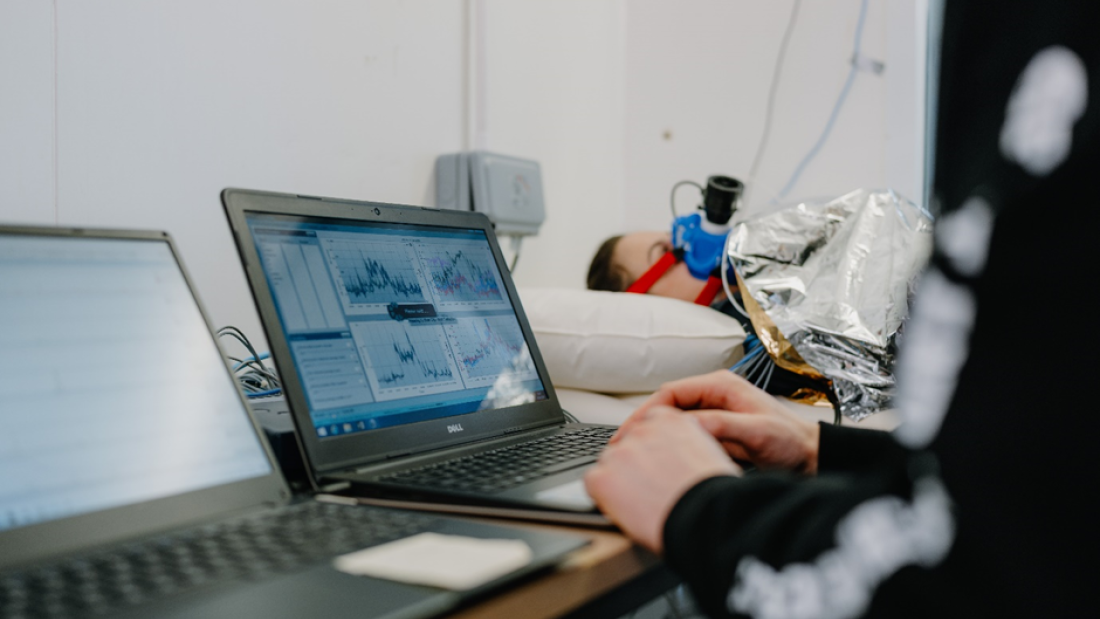Research from Bangor University testing the effectiveness of improvised methods to reduce cold stress in humans was included in the Physiological Society’s latest Climate Change and Health report for the 29th Conference of the Parties (COP) to the UN Framework Convention on Climate Change (COP29), which took place in Baku, the Republic of Azerbaijan.
Professor Sam Oliver, Department of Sport and Exercise Sciences, and Director of the Institute for Applied Human Physiology at Bangor University, said:
“We’re thrilled our work is included in the Physiological Society’s latest Climate Change and Health report. We hope the extra exposure of the work helps inform and prepare more people and organisations to reduce cold exposure-related deaths”
The team’s research found that wrapping people in building membrane, a thin layer used liberally in house construction, was as effective at reducing cold stress, as a foil blanket, a commonly used strategy to reduce cold stress and prevent hypothermia. In other findings, adding three 1 L hot water bottles, improvised from Nalgene bottles, bandage and drybags, made people feel warmer, but didn’t change the body’s thermal responses.

Building membrane and hot water bottles were chosen as they can be improvised in low-resource environments, for example, salvaged from destroyed buildings after natural disasters and during war.
The findings from this research will help improve medical training for people working in remote and emergency situations with lessons learnt from the lab informing pre-hospital and prolonged field care medical training delivered by Remote Area Risk International and the Institute for Remote Area Risk Management and Medicine.
The research came about after Prof Oliver from the Institute for Applied Human Physiology (https://www.bangor.ac.uk/iahp) partnered with medical training company Remote Area Risk International and the Institute for Remote Area Risk Management and Medicine (https://www.r2rinternational.com/iraram). The overall aim of the work is to improve medical care in emergency situations that occur in outdoor and remote areas, such as expeditions, military operations, and humanitarian disasters.
The work was supported by a Bangor University Innovation and Impact Award, funded by Research Wales Innovation Fund.
The Climate Change and Health: The Physiological Society’s Key Recommendations for COP29 report can be found by clicking this link.

